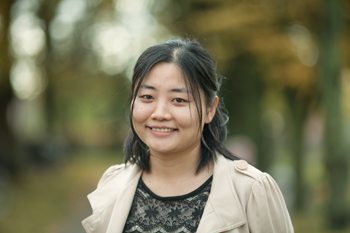Conjunction of Chinese and Western educational traditions in the design and teaching of Sino-Danish Centre courses
See Jie Gao talk about her research interests and PhD project in UNIKE:
The Internationalization of Curriculum (IoC)
As the internationalization of higher education expands quickly in the past decade, how to understand and carry forward the process of internationalization of the curriculum (IoC) in the so-called global knowledge economy has become a very prominent issue. Yet most of the discussions revolving around the topic are taking place at a very practical level, in which detailed experiences of teaching and learning of international groups are presented in the form of case studies and very concrete problems located for the formulation of solutions. The problems people encounter in the process of IoC are usually considered to be either technical/managerial which should be dealt with through technical/managerial measures, or cultural which should be solved through the management of cultural differences. Together these studies formed a body of hand-on experiences, even made into useful guidelines or checklists for the practitioners of IoC, but more systematic framework needs to be constructed to render more and deeper insights into the IoC.
The Transnational Education (TNE) and the Cultural Differences
The spaces of transnational education (TNE) such as joint campuses or offshore branch campuses----where the internationalizing of curriculum and pedagogy is demanded and initiated with the most creativity and efficiency---- are ideal sites for the study of IoC. In these spaces of TNE, “cultural differences” are commonly conjured up both as highly appreciated advantages of international HE programmes nurturing intercultural competencies of the students, but also held as causes of the malfunctions of some programmes as the gaps between different groups are deemed to be too big to bridge through curricular and pedagogical adaptions. How the nation-states, institutions and individuals define and respond to the so-called Cultural Differences play an essential role in the development and delivery of the international curricular.
Sino-Danish Centre for Education and Research (SDC)
This research intends to look into the development and delivery of curricula and pedagogies at the Sino-Danish Centre for Research and Education (SDC) in Beijing, China. The SDC is a joint university campus established by 8 Danish universities and the University of Chinese Academy of Science in 2008. It aims to “establish itself as a unique collaboration between Denmark and China on research, master education and PhD training”. The special “position of in-between” of the joint campus brings close the home country and the host country while “cultural differences” are deliberately exploited to construct a dichotomy of Denmark and China in order to bring out the “synergy” and complementary effects. For example, the number of Danish students and Chinese students in the classroom are more or less the same, and the staff positions set up for each MA programmes are symmetrical for the Chinese and the Danes. In its websites, promotional materials, newsletters, strategic plans and many other forms of narratives it employs China/Chinese/Chinese-ness and Denmark/Danes/Danish-ness as two important categories that are constantly positioned in relation to the other.
Methods
By following how the SDC conceptualizes the “cultural differences” as expressed and promoted in its policies, and how administrators, academics, employees and students at the SDC respond to and influence these policies, this research tries to establish a theoretical framework with the approach of “study through” from the Anthropology of Policies, in order to bring into view more actors and social relations at work in the developments of IoC and generate a more comprehensive understanding of the IoC in the context of the worldwide prospering of the TNE.
